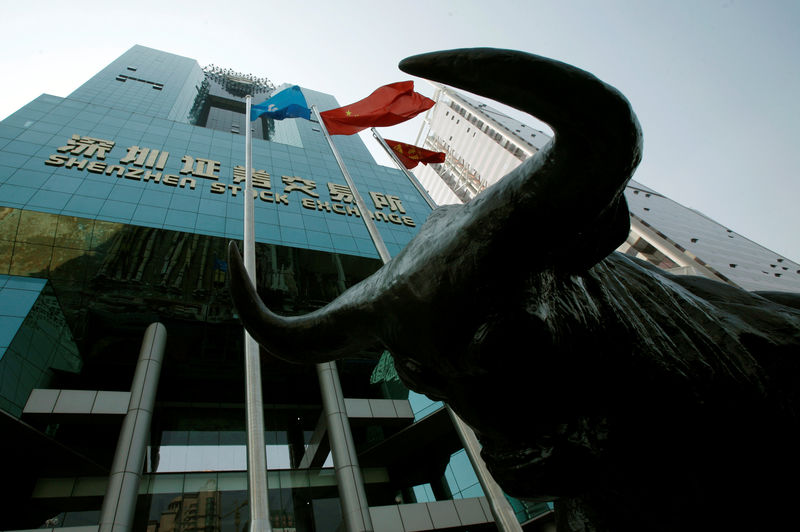Investing.com-- China’s benchmark stock indexes saw an extended rebound this week, after the People’s Bank unexpectedly rolled out more monetary stimulus and flagged more measures to help support an economic recovery in the country.
The PBOC unexpectedly cut its reserve requirement ratio (RRR) rate by 50 basis points on Wednesday. The rate dictates the level of capital reserves that local banks need to maintain, with Wednesday’s cut freeing up nearly $140 billion in liquidity that can now be deployed into the economy.
The central bank also further loosened lending requirements for China’s flailing property sector, and said it had more measures planned to support growth.
China’s bluechip Shanghai Shenzhen CSI 300 jumped nearly 2.7% over two days, hitting a two-week high, while the Shanghai Composite added nearly 4%. The two indexes extended a rebound from five and four-year lows, respectively.
Gains in mainland stocks helped Hong Kong’s Hang Seng index jump nearly 10% from 15-month lows.
The PBOC’s move helped improve sentiment towards Chinese markets, which were nursing bruising losses over the last two years as economic growth slowed substantially. A post-COVID economic rebound largely failed to materialize through 2023, even as the government relaxed all anti-COVID restrictions.
Losses in Chinese stocks came to a head this week following weaker-than-expected gross domestic product data for the fourth quarter. GDP also barely edged past a 5% government target for 2023.
Analysts question just how much support RRR cut will provide
But while the RRR cut and the PBOC’s liquidity promises offered some short-term support to Chinese markets, analysts questioned just how much actual economic growth will come from the measures.
The PBOC also has limited headroom to dole out more monetary stimulus. The bank had kept its benchmark loan prime rate- which has a greater impact on lending conditions- at record lows last week.
Chinese consumer and capital spending still remained weak, with the country seeing persistent deflation for three months running. Capital investment also slowed substantially over the past year, while concerns over the economy drew little foreign inflows.
“We expect a relatively limited positive impact on the economy from the RRR cut and supplementary measures. There remains a question of whether there is sufficient high-quality loan demand to fully benefit from this theoretical liquidity injection,” ING analysts wrote in a note.
Given the limited impact of monetary stimulus, investors have ramped up calls on Beijing to roll out more targeted, fiscal measures. But the government's capacity to do so remains constrained by high debt levels.
Chinese purchasing managers index data for January is now due next week, and is expected to provide more cues on business activity after a largely underwhelming 2023. The upcoming Lunar New Year holiday could also potentially stimulate growth.
Upgrade your investing with our groundbreaking, AI-powered InvestingPro+ stock picks. Use coupon INVPRO2024 to avail a limited time discount on our Pro and Pro+ subscription plans. Click here to know more, and don't forget to use the discount code when checking out!
